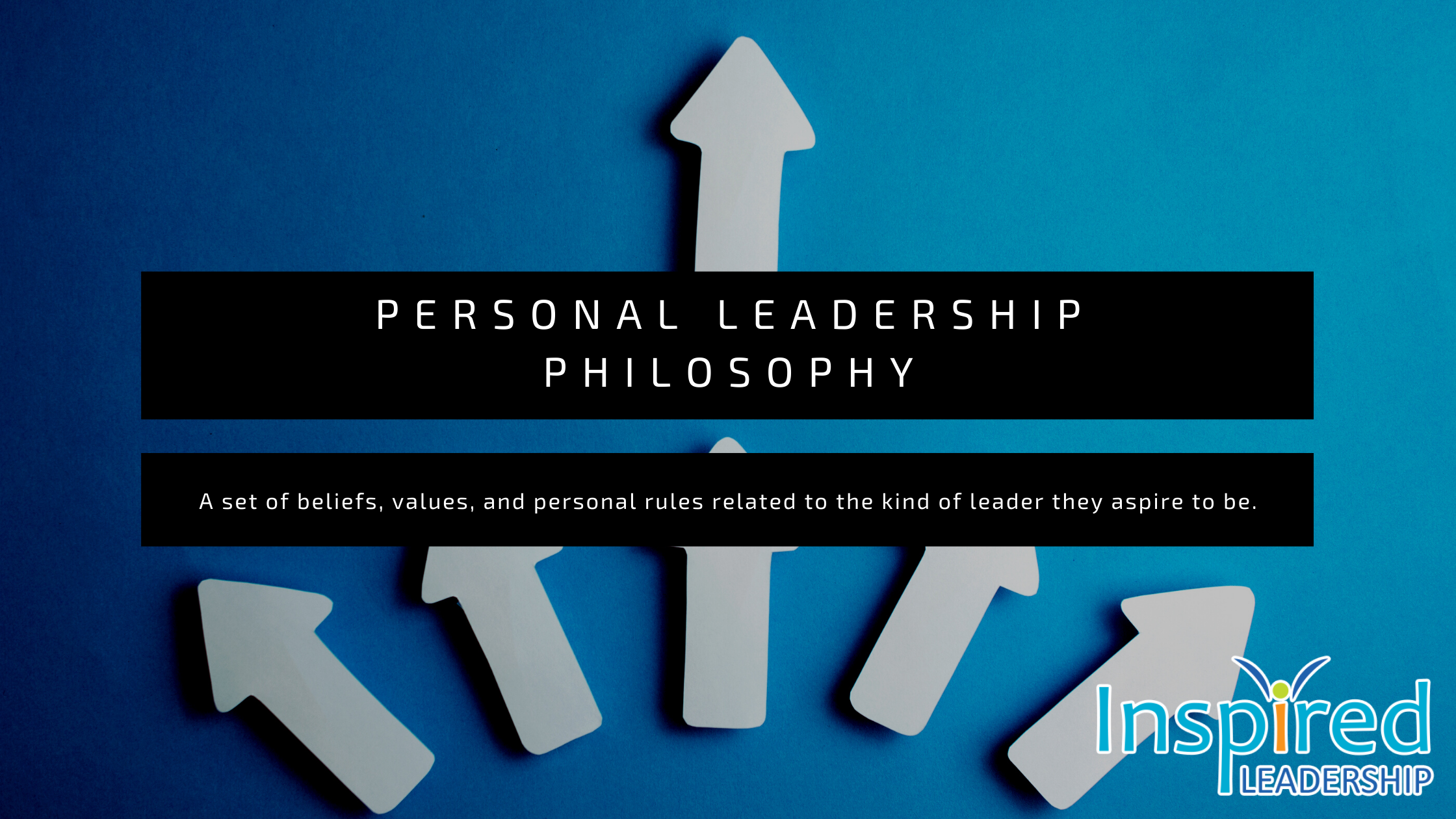One foundation of great leaders is having and understanding their own leadership mindset philosophy — a set of beliefs, values, and personal rules related to the kind of leader they aspire to.
This foundation will drive the workplace environment and culture of the team the leader leads, whether this is a four-person department or a multinational company with hundreds of thousands of employees. Great leaders can be found at all levels of organizations, not just in the C-suite.
The written personal leadership philosophy
A written personal leadership philosophy is an important distinction between good leaders and great leaders. Great leaders have a written personal leadership philosophy. Good leaders do not.
A leadership philosophy is a set of beliefs and principles that strongly influences how you interpret reality. It guides how you react to people, event, and situations. Research has shown that consistent leadership behavior and actions require a clear personal leadership philosophy.
A written leadership philosophy also lets team members and others know what you expect, what you value, and how you will act in any given situation. This helps to make your workplace environment less stressful and more productive, as well as keeping you on track and aligned with your core beliefs and values.
Konosuke Matsushita, the founder of Panasonic in Japan, is known in that country as the “god of management” for his writings and speeches on leadership and management. He wrote, “If you are a leader, you must have an ideology of leadership. If you lack an ideology, and attempt to decide everything on a case-by-case basis, you will never be capable of strong leadership.”
Clarity and core values in leadership
It is critical that leaders gain clarity about their own leadership philosophy, style, and behavior. When I coach leaders, this is one of the first places we begin to discuss in detail.
Some of the core values you may want to include in your personal leadership philosophy could be: confidence, adaptability, focus on people development, and having a realistic vision. The important thing is that the values must be your own — things you deeply believe in and care about. They cannot just be a list of positive attributes that you find in a book, an article, or online.
No matter what attributes and values you choose, however, trust overrides them all. Without trust, none of your other attributes and values matter. Trust is something you earn and maintain through your behaviors. It is not bestowed upon you by rank or title.
Confidence is another key element of a strong leadership mindset. It comes from knowing yourself, and understanding (and appreciating) your strengths and weaknesses.
It also comes from observing and analyzing how you make decisions, both good and bad. Not every decision will work out as you expect. That’s okay.
Judgement calls and decision-making
The key is to reflect back on how and why you made a particular decision to learn about your decision-making capabilities, tendencies, habits, and inclinations. This helps you grow as a leader and gives you greater confidence when you have to make judgment calls in areas where you may not be a technical subject matter expert.
This also enables you to de-personalize decisions, i.e. no more “I’ll go with Beth on this one.” Decisions should be made based on your determination of the facts and reality of the situation, not based on which person is presenting a proposed option.
It also allows you to create your own solutions from differing opinions that build on the strengths and ideas of each. Leveraging positive cognitive conflict (i.e. the opposing of two or more ideas) is one of the best ways of coming up with innovative solutions, and keeps negative personal conflict from getting in the way of good decision making.
The importance of developing your own PERSONAL leadership philosophy
By knowing your own leadership philosophy, and then identifying the behaviors that will help you implement these guiding principles, you will avoid the trap of deciding everything on a case-by-case basis. This results in consistency of leadership behavior; a benefit for both you and your team members.
No one leadership philosophy can be viable for everyone. Each leader is faced with different circumstances, brings different backgrounds to their leadership position, and has to lead widely different teams of people. You have to figure out what’s right for you; what’s true to you.
And if you don’t, you will attempt to decide everything on a case-by-case basis which, as Matsushita-san points out, means you will not be capable of strong leadership.
Here are seven sets of questions to ask yourself in developing, reviewing, or fine-tuning your leadership philosophy:
- What is the primary focus of your leadership beliefs — results, people, both? Why?
- What do you want to accomplish in your current leadership role and as your career advances? Why?
- How would you like others to describe your leadership style and behaviors? With what specific words and terms?
- What do you expect from those you lead? How will you demonstrate and communicate this?
- What level of control makes you comfortable? What level of delegation makes you comfortable? Why?
- How do you view the mistakes of others? Of yourself? Why?
- What are your rules of leadership? Are these written down? Are these rigid or flexible?
Answering these questions will enable you to create your own leadership philosophy, providing you with one of the key foundations for becoming a great leader.
To learn more about this important skill, contact Steven Howard
You might be interested to find out more about Giving Performance Feedback and access our Treasure Trove of recordings & gifts.
About the author
 Steven Howard brings expertise in leadership, business development, and marketing. An award-winning author of 20 books with 40 years of international senior sales and marketing experience, his corporate career covered a wide variety of fields and experiences, including Regional Marketing Director for Texas Instruments Asia-Pacific, South Asia / ASEAN Regional Director for TIME Magazine, Global Account Director at BBDO Advertising handling an international airline account, and VP Marketing for Citibank’s Consumer Banking Group.
Steven Howard brings expertise in leadership, business development, and marketing. An award-winning author of 20 books with 40 years of international senior sales and marketing experience, his corporate career covered a wide variety of fields and experiences, including Regional Marketing Director for Texas Instruments Asia-Pacific, South Asia / ASEAN Regional Director for TIME Magazine, Global Account Director at BBDO Advertising handling an international airline account, and VP Marketing for Citibank’s Consumer Banking Group.
He specializes in creating and delivering leadership development programs for frontline leaders, mid-level leaders, supervisors, and high-potential leaders. In the past 25 years, he has trained over 10,000 leaders in Asia, Australia, Africa, Europe, and North America.





